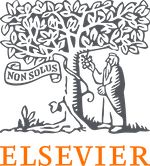Adaptive reuse as a result of an interdisciplinary dialogue
DOI:
https://doi.org/10.29105/contexto18.28-406Keywords:
adaptive reuse, recycling, interdisciplinary dialogueAbstract
In this paper we analyze the architectural and urban intervention proposals based on the concept of recycling. The aim is to emphasize some important issues of these proposals, especially because of their multidisciplinary nature, and their contribution in how to approach urban problem solving. The paper is divided in two sections, in the first one we contextualize the approach and briefly expose some examples of these proposals, in the second one we present some considerations on ethical principles, interdisciplinary dialogue and creativity as fundamental elements of the proposals and the challenges to face.
Downloads
References
Aimini, Matteo, (2016), Paesaggi del Nordest. Indagini e scenari Re-Cycle ai margini della Pedemontana Veneta. Italia: Aracne editrice.
Ayala Moreno, Alma Angelina y Ayala Moreno, Juan Pedro, (2020), “Reciclaje arquitectónico y urbano: Una breve introducción”, MADGU. Mundo, Arquitectura, Diseño Gráfico y Urbanismo, Vol. 3, No. 5. https://doi.org/10.36800/madgu.v3i5.50. DOI: https://doi.org/10.36800/madgu.v3i5.50
Bagnato, Vincenzo (2015), “Il riciclo come strategia etica per il paesaggio: alcune brevi riflessioni”, en Carta, Maurizio y Lino, Barbara (eds.), Urban Hyper-Metabolism. Italia: Aracne editrice, pp. 246-249.
Baudrillard, Jean, (1969), El sistema de los objetos. México: Edit. Siglo XXI.
Baudrillard, Jean (2009), La sociedad de consumo. España: Edit. Siglo XXI.
Blasco, José Antonio, (2016), “El río que se convirtió en parque: los Jardines del Turia en Valencia”, Urban Networks [en línea]. http://urban-networks.blogspot.com/2016/06/el-rio-que-se-convirtio-en-parque-los.html.
Broido, Jonathan, (1979), "Interdisciplinarity, Reflections on Methodology", en Kockelmans, Joseph J. (ed.), Interdisciplinarity and Higher Education. University Park: The Pennsylvania State University Press. pp. 244-305.
Corboz, André, (1983), “Le territoire comme palimpseste”, Diogène, No. 121, pp. 14-35.
Gardner, Howard, (2011), Mentes creativas. Una anatomía de la creatividad. Barcelona: Paidós.
Iracheta Fernández, Francisco, (2011), “¿Qué significa una formación ética?”, En-claves del Pensamiento, Vol. V, No. 10, pp. 147-172. https://doi.org/10.46530/ecdp.v0i10.163.
Klein, Julie Thompson, (1983), "The dialectic and rhetoric of disciplinary and interdisciplinary", Issues in Integrative Studies, Vol. 2, pp. 35-74. http://hdl.handle.net/10323/4005.
Klein, Julie Thompson, (1990), Interdisciplinarity: History, Theory, and Practice. Detroit: Wayne State University Press.
La Belle, Thomas J., (1982), “Formal, nonformal and informal education: A holistic perspective on lifelong learning”, International Review of Education, No. 28, pp. 159-175. https://doi.org/10.1007/BF00598444. DOI: https://doi.org/10.1007/BF00598444
Mauser, Wolfram, Klepper, Gernot, Rice, Martin, Schmalzbauer, Bettina Susanne, Hackmann, Heide, Leemans, Rik y Moore, Howard, (2013), “Transdisciplinary global change research: the co-creation of knowledge for sustainability”, Current Opinion in Environmental Sustainability, Vol. 5, No. 3–4, pp. 420-431, https://doi.org/10.1016/j.cosust.2013.07.001. DOI: https://doi.org/10.1016/j.cosust.2013.07.001
Muntañola Thornberg, Josep, (1998a), “Arquitectura Dialógica y Psicología Ambiental”, en Muntañola Thornberg, Josep (ed.), Impacto físico, social y cultural de la Arquitectura. Barcelona: Edicions UPC, pp. 61-65. http://hdl.handle.net/2099.3/36119.
Muntañola Thornberg, Josep, (1998b), “Psicología y Arquitectura: Notas breves”, en Muntañola Thornberg, Josep (ed.), Impacto físico, social y cultural de la Arquitectura. Barcelona: Edicions UPC, pp. 47-60. http://hdl.handle.net/2099.3/36119. DOI: https://doi.org/10.5821/ebook-9788483014646
Real Academia Española (2014). Diccionario de la lengua española, 23ª ed., [versión 23.3 en línea]. https://dle.rae.es.
Sawyer, R. Keith, (2006), Explaining Creativity. The Science of Human Innovation. New York: Oxford University Press. DOI: https://doi.org/10.1093/oso/9780195161649.001.0001
Wagensberg, Jorge, (2017), Teoría de la creatividad: Eclosión, gloria y miseria de las ideas. Barcelona: Tusquets Editores.
Downloads
Published
How to Cite
Issue
Section
License
Copyright (c) 2024 Alma Ayala, Juan Ayala

This work is licensed under a Creative Commons Attribution-NonCommercial 4.0 International License.
The authors who publish in this journal accept the following conditions:
1. The authors keep the copyright and give the journal the right of the first publication, with their content registered under the Creative Commons License, which lets third parties to use the published material as long as they mention the authors and the first publication from the journal.
2. The authors can make other independent and additional contractual agreements for the non-exclusive distribution of the version of the article published in the journal (for example an institutional repository or a book) provided that they explicitly mention that the content was first published in CONTEXTO. Revista de la Facultad de Arquitectura de la Universidad Autónoma de Nuevo León..














.png)





